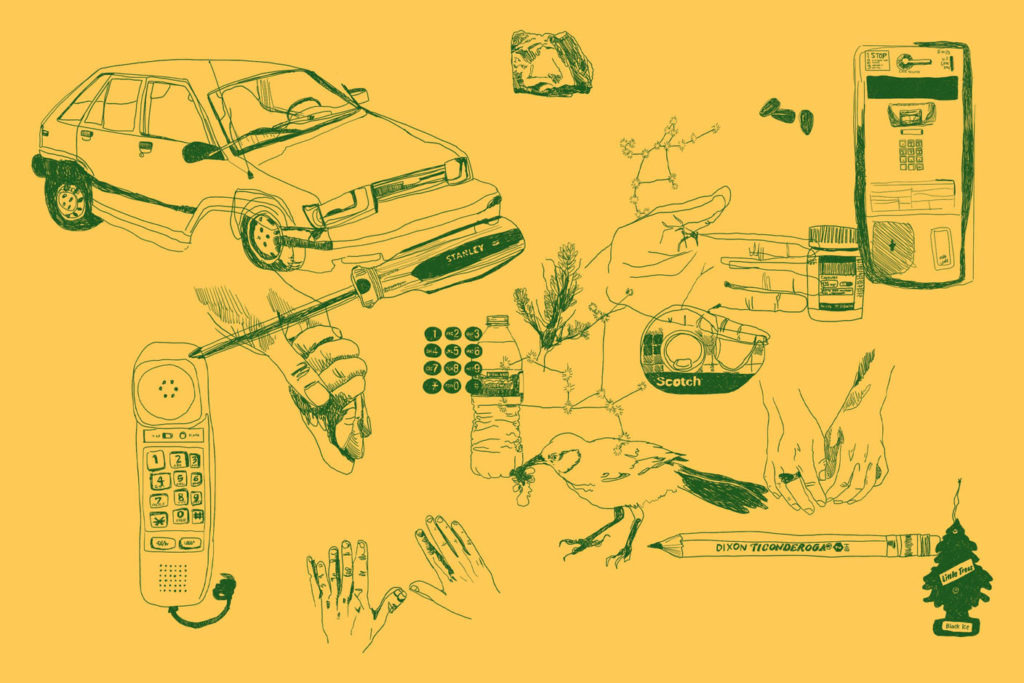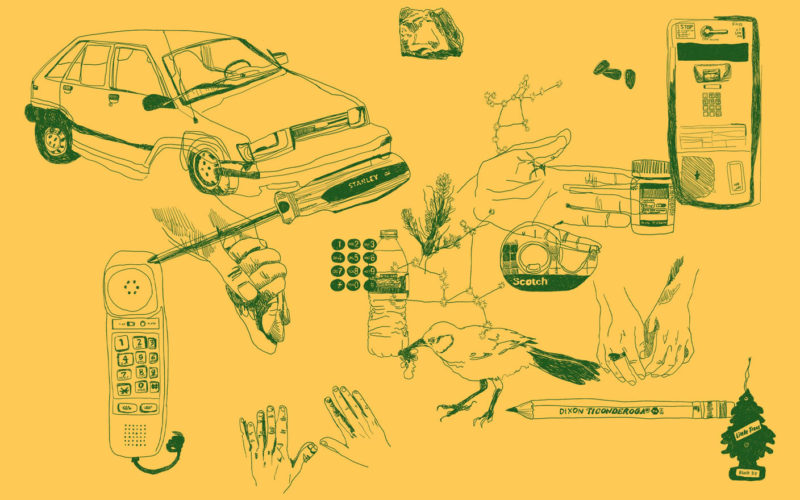JOCELYN MURPHY
jmurphy@nwadg.com
Our relationship with the telephone has changed dramatically even over the course of one generation. Many remember a time of land lines, before cell phones, when strangers might call your home frequently. The cell phone became ubiquitous and took those on-the-line conversations outside the home.
Now, caller ID, call-screening, spam blockers and the like have made it easy to avoid speaking to strangers on the phone at all. Instead, it has become a platform for only speaking with those you choose. Through April 3, the Momentary, along with performance artists 600 HIGHWAYMEN, are asking people to choose to speak to a stranger in an experience that reframes the phone as a tool to facilitate an artistic experience.
“In experiencing it for myself, I had such a beautiful portrait of the person on the other end of the line,” shares Pia Agrawal, curator of performing arts at the Momentary. “I never saw them, I don’t know their name, and I may never speak to them. And that’s the thing — if I ever speak to that person again, I won’t know. But I felt like I knew something about them by the end of the experience.”

“A Thousand Ways” is a social experience and performative project created by 600 HIGHWAYMEN devised to guide participants from isolation to congregation. Designed as a triptych, three different encounters will take place over the next year that will “bring us back to a moment thinking about re-gathering, and regrouping and sharing space a little bit easier in the future,” Agrawal explains. The first of those experiences is “(Part One): A Phone Call.”
Two strangers are paired for “A Phone Call” for an hourlong phone conversation. Just a conversation — with nothing too probing, nothing embarrassing expected of either participant — where two strangers will delve into memory and experience to create an intimate portrait of the person attached to the voice at the other end of the line. In a time when a global pandemic and a fraught civil rights movement rightfully dominate many of the interactions people have in their day-to-day lives, Agrawal poses: “A Thousand Ways (Part One): A Phone Call” prompts the two callers to unearth the pieces of our past that make us who we are. Moving beyond “Where are you from?” and “What do you do?” the experience gets to the heart of “Who are you?” via a guided conversation.
“Doing it on the phone, there was such a beautiful simplicity,” Agrawal recalls of her own experience with the project last November. “But the experience itself was, for me, very moving but very gentle. I felt so eased along and comfortable in a conversation and sharing details with someone, perhaps because they are a stranger.
“There were moments where I would get asked a question or get a prompt, and I was surprised by my own answer. Because you don’t know how you’re going to answer a question until you’re asked. So I think there were some really nice, kind of beautiful surprises in that.”
Each conversation is guided by a thread of automated prompts, delivered by a recorded voice. But it is not scripted. The experience is personality-driven and urges callers to talk about themselves, to build a connection through mutual sharing. “A Thousand Ways” was in development before the pandemic necessitated social distancing and isolation, but the project was easily adapted to present circumstances, Agrawal reveals.
“Some of the original ideas were like, how do we create a platform for the people around us to get to know each other a little bit better? Because I think, especially in recent years, we’ve asked ourselves more questions like, ‘Who makes up my community? Who makes up my society? Who’s around me?’ So that is part of this experience, is how do you get to know the people that make up the fabric of your community a little bit better? Even if it’s in a 60-minute phone call, or a one-on-one experience, when you add all these experiences together, it creates something.”
__
FAQ
‘A Thousand Ways’
‘(Part One): A Phone Call’
WHEN — Through April 3
WHERE — themomentary.org
COST — $10; ($8/members)
INFO — 418-5700, themomentary.org



